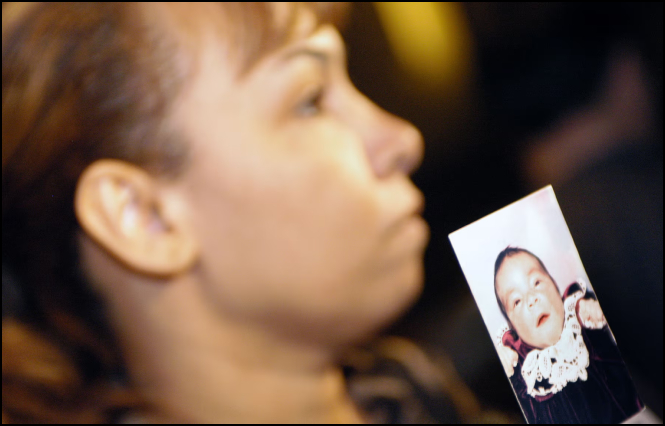When Delimar Vera was just 10 days old, authorities told her mother she had died in a house fire. But the truth was far more sinister: Delimar was kidnapped and raised under a different name, in a different state, by a woman who wasn’t her mother.
Now in her late 20s, Vera is sharing her astonishing story of survival and rediscovery in a documentary that pulls back the curtain on a childhood that veered between tragedy and resilience.
“It’s mind-blowing to think the ‘bad lady’ they warned me about was actually my real mother,” Vera reflects, recounting how her kidnapper, Carolyn Correa, manipulated her perception of reality for six years. “I was a sassy kid,” she adds with a wry smile, recalling how she’d promised not to let anyone take her away—unaware that she had already been taken.
A Story That Captivated the Nation
Delimar Vera was born in December 1997 to Luz Cuevas and Pedro Vera in Philadelphia. Just 10 days later, a suspicious fire erupted in the family’s home. Officials reported that the infant’s body had been “completely consumed by the fire,” and the case was closed.
But Cuevas never believed her baby was dead.
Six years later, at a birthday party in New Jersey, Cuevas spotted a young girl with a familiar smile and unmistakable dimples. In what Vera now describes as “blood calling,” her biological mother instinctively knew the girl was her daughter.
Cuevas discreetly collected a few strands of hair and demanded a DNA test. The results confirmed what she already knew: Delimar was alive.
Correa, a distant relative of Vera’s father, had kidnapped the newborn and raised her under the name Aaliyah. She was eventually arrested and sentenced to nine to 30 years in prison. The story made international headlines and inspired a Disney made-for-TV movie. But for Vera, the real story was just beginning.
“Nobody Ever Asked If We Were OK”

Reuniting with her biological family at age six wasn’t the fairy tale the media portrayed. Vera, who spoke no Spanish and was suddenly surrounded by strangers, struggled to adapt.
“I hated the name Delimar at first,” she says. “I wanted my old name. I wanted to go back.”
While the world celebrated her return, Vera was quietly unraveling.
“There was no therapy, no support. Everyone focused on the rescue, not the years in between.” She describes the early years with Correa as filled with neglect and fear, recalling hunger, physical abuse, and a frightening male partner. “I remember running from her. I don’t remember love.”
At her new home, she found safety—but also emotional distance. Cuevas, who had lost her daughter once, became fiercely protective.
“She was super-strict. Rightfully so. But we weren’t touchy-feely,” Vera says. “Hugs were awkward. I learned to swallow my feelings.”
Rebuilding Amid Chaos
The trauma caught up with Vera in her teens. She clashed with both her parents, moved out, and eventually landed in the foster care system.
“I had my 15th birthday in a group home. Neither parent called,” she says. For a time, she drifted—working odd jobs, living in dangerous neighborhoods, and enduring an abusive relationship.
But at 20, something changed.
“I was tired of being a victim. I decided to do better.” She moved into a small apartment—“the size of a closet, but it was mine”—and began rebuilding. In 2018, she met Isaiah, now her husband, who encouraged her to reconnect with her family. “He drew me closer to them,” she says.
Today, Vera lives in Philadelphia with her husband and 11-year-old stepson, working from home alongside her dog and cat. She speaks to her mom multiple times a week.
“My brothers are my best friends,” she says.
Full Circle

The upcoming documentary reunites Vera with Antoinette, an aunt figure who cared for her during the kidnapping years and lost touch after the truth came out. It also captures a pivotal conversation between Vera and her father, where she finally asks if he played a role in her abduction. His answer, revealed in the documentary, marks a critical step in Vera’s healing.
Correa declined to participate in the film. She has since served her sentence.
Despite lingering questions, Vera says she has made peace with the ambiguity. “There are things I’ll never fully understand. But I’ve learned to live in the now.”
And yes—she’s finally embraced her name:
“I used to hate ‘Delimar.’ Now? I love it. I’ve never met another Delimar. It’s mine.”
